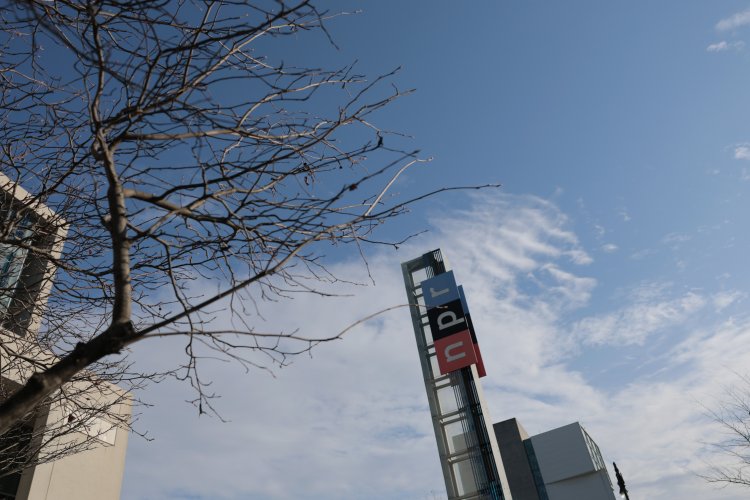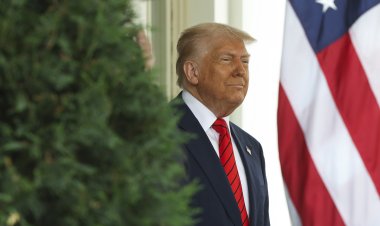Congress Faces Trump's Campaign Against Public Media
In a recent statement, FCC Chair Brendan Carr expressed his skepticism regarding taxpayer funding for public broadcasting. "I'm not sure I see a reason why the taxpayer should be forced to subsidize NPR and PBS," he said, highlighting his concerns over the necessity of such financial support.

Katherine Maher, CEO and President of NPR, along with Paula Kerger, CEO and President of PBS, are scheduled to testify before the House Oversight Subcommittee on Delivering Government Efficiency on Wednesday. This subcommittee, led by Rep. Marjorie Taylor Greene, was established alongside Elon Musk’s Department of Government Efficiency. This hearing coincides with investigations by the Federal Communications Commission, led by Trump ally Brendan Carr, focusing on corporate sponsorships at NPR and PBS.
While efforts to cut funding for NPR and PBS are not unprecedented—having faced opposition from several Republican administrations dating back to Ronald Reagan—the intensity of the current campaigns illustrates the heightened conflict between the president and the media in his second term.
In a press conference on Tuesday, Trump expressed his desire to defund both NPR and PBS, stating, “I think it's very unfair, it's been very biased — the whole group.” He criticized the financial resources allocated to these outlets, describing them as a waste and reflecting a “very biased view.”
This initiative aligns with Trump’s broader strategy to use his administration to target media organizations he views unfavorably. Over recent months, his administration has barred the Associated Press from reporting on White House events, removed NPR and PMG from their traditional workspace at the Pentagon, closed the government-funded Voice of America, and reopened investigations into television networks over alleged violations, particularly concerning diversity, equity, and inclusion.
Trump and his supporters have condemned NPR and PBS for what they describe as a liberal bias supported by taxpayer money. During his first term, Trump tried various times to reduce public broadcasting budgets, labeling NPR a “liberal disinformation machine” last year.
Despite receiving other sources of funding, the potential loss of Congressional appropriations poses a significant threat to the future of public media, especially for smaller stations that rely heavily on such funding.
The movement to defund public media has gained traction, partly due to Musk, who first advocated for defunding NPR in 2023. “It should survive on its own,” Musk wrote on X.
Under Musk's leadership, the platform has also categorized NPR as “state affiliated media,” a label often associated with government-controlled media in authoritarian regimes like those in China and Russia.
In a letter inviting NPR and PBS leadership to testify, Greene characterized their content as “systematically biased” and “blatantly ideological and partisan.” She referenced an essay by former NPR editor Uri Berliner, which claimed the organization had shifted more to the left and had failed to adequately report on Hunter Biden's laptop.
“I want to hear why NPR and PBS think they should ever again receive a single cent from the American taxpayer,” Greene stated regarding the upcoming hearing.
However, the relationship between NPR, PBS, and federal funding is complex. The Corporation for Public Broadcasting, chartered by the U.S., manages a budget of approximately $500 million from Congress each fiscal year, distributing it to NPR and PBS.
NPR, which produces many of the broadcaster's most popular shows, directly receives about 1 percent of its funding from the federal government, whereas NPR member stations average around 10 percent of their budget from government sources. The existence of these local stations has historically helped the organization defend against attacks. NPR's public editor has noted that its public media model enables it to deliver news to areas that commercial newsrooms find unprofitable.
PBS receives around 16 percent of its funding directly from the government, as noted by a PBS spokesperson. “PBS and our member stations are grateful to have bipartisan support in Congress, and our country,” the organization commented, expressing appreciation for the opportunity to present their case to the committee.
NPR was unavailable for comment.
Both NPR and PBS are undergoing investigations by the FCC. In January, Carr stated that member stations of both organizations were improperly allowing corporate sponsors to promote their products instead of serving merely as underwriters for programming.
NPR has defended its practices, asserting compliance with federal regulations regarding underwriting and messaging. PBS spokesperson Jason Phelps indicated that PBS is also compliant with FCC guidelines, expressing a willingness to demonstrate this to the Commission.
Rep. Doris Matsui, the top Democrat on the House Energy and Commerce Communications and Technology Subcommittee, has questioned whether the GOP's scrutiny of media will resonate with the public. She defended PBS and NPR, calling them “about as fair as you can get,” highlighting that their programming serves both rural and urban audiences.
“My son grew up on 'Sesame Street' and 'Mr. Rogers,'” she remarked.
The investigation initiated by Carr has been long anticipated, as he contributed to the section on the FCC in Project 2025, a detailed plan for Trump’s second term that included a call to eliminate funding for NPR and PBS.
When asked about the subcommittee meeting regarding NPR and PBS, Carr stated that the investigation is ongoing and that he has not communicated with the subcommittee about it. “I do think this is a question for Congress, ultimately, about funding,” Carr said. “For my own part, I'm not sure I see a reason why the taxpayer should be forced to subsidize NPR and PBS, but I'll see how the hearing goes.”
Aarav Patel for TROIB News
Find more stories on Business, Economy and Finance in TROIB business











